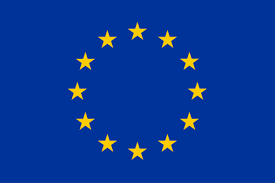Scaling up and out – FoodSHIFT 2030 webinar

COVID-19 has shown how fragile our food systems are and how important it is to develop well-thought supply chains. Our Policy Associate Manager, Silvia Schmidt, chaired this FoodSHIFT 2030 webinar, which highlighted how to transform today’s food supply chains into more sustainable ones by shortening them and bringing local consumers and producers together.
The webinar started with the introduction of the Brasov FoodSHIFT Accelerator Lab in Romania. This FoodSHIFT lab enables producers to connect with local people and restaurants, which is very important for farmers as they depend on the regional market. Following, Tom Uhnak introduced the audience to a form of community supported agriculture in Czech Republic. In this solidarity approach to local food supply, people can visit a website to find or connect with the nearest group to support regional agriculture. Lastly, Nick Weir presented the Open Food Network in the UK. It is a food hub that brings together all regional producers and their consumers, by providing an online market platform. The discussion at the end between speakers and audience also highlighted how important the integration of low-income groups and the digitalization of supply chains are.
Are you interested in this event? Watch the recordings on FoodSHIFT’s YouTube channel.
Visit the FoodSHIFT2030 website to learn more and follow the latest project’s developments on Twitter and LinkedIn, Instagram and YouTube using @foodshift2030. FoodSHIFT2030 is a Horizon 2020 project promoting food systems innovations in nine cities across Europe. More information about the 9 nine FoodSHIFT Labs is available on the FoodSHIFT 2030 website. Follow the project on social media using @FoodSHIFT2030 on Twitter, Instagram, YouTube and LinkedIn. IFOAM Organics Europe contributes to the conceptual framework for further development of governance strategies and food policy strategies. We will also disseminate project outputs within the organic network and at our main events.

FoodSHIFT 2030 has received funding from the European Union’s Horizon 2020 research and innovation programme under grant agreement number 862716. This communication only reflects the author’s view. The Research Executive Agency is not responsible for any use that may be made of the information provided.

